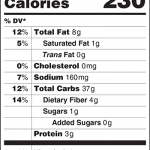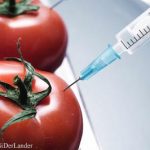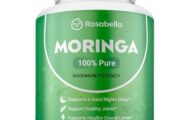Consumers Union, the public policy and advocacy arm of Consumer Reports has estimated the cost of labeling GE foods and has released a report based on a literature review. They state that the median cost incurred by producers and retailers will be $2.30 per person per year; less than a penny a day. Labeling foods that contain genetically engineered (GE) or genetically modified (GMO) ingredients has been a contentious issue for years. Consumers and consumer groups want these food labeled so people can make an informed choice; polls show that more than 90% of consumers want these foods to be labeled. Industry generally opposes labeling, stating it would increase costs dramatically. Consumers Union asked ECONorthwest to resolve this disagreement. The studies reviewed include assessments … [Read more...]
Experimental GMO Wheat Found in Montana Field
The USDA announced last week that experimental genetically modified (GMO), or engineered (GE), wheat was found at a Montana research facility that hasn't grown the crop since 2003. Center for Food Safety says this finding demonstrates that "coexistence" between GE crops and non-GE crops is a failed policy. At the same time they announced this finding, the government also announced they closed the investigation into GE wheat that was found growing in Oregon last year. They have opened a new investigation into separate detection of GE wheat in Montana. The new investigation is apparently a "regulatory compliance issue." The GE wheat found in Montana in July 2014 is "significantly different" from the GE wheat that was found growing at an Oregon farm last year. There are no GE wheat … [Read more...]
USDA Approves New 2,4-D Resistant GE Corn and Soy
The USDA has approved new GE corn and soy, which environmental and food safety advocates say will mean the release of millions of pounds of more pesticides into the environment. Center for Food Safety has condemned this decision to fully deregulate Dow Chemical's Enlist corn and soybeans. Those crops are engineered to withstand "repeated spraying of the herbicide 2,4-D." The EPA has yet to approve this new herbicide. Andrew Kimbrell, executive director of Center for Food Safety said in a statement, "2,4-D resistant crops pose a monumental threat to our nation's agricultural, environmental, and human health. With this approval comes millions of more pounds of toxic herbicides dumped onto our land. Center for Food Safety will pursue all available legal options to stop the … [Read more...]
Judge Strikes Down Hawaii Law Limiting GMO Crops
U.S. District Court Judge Barry M. Kurren has struck down the Kaua'i county law against genetically modified (GM) crops, saying it is preempted by Hawaiian state law. The order forbids county officials from implementing and enforcing Ordinance 960, which required more disclosure from huge biotech companies about pesticide use and GMO farming. The Ordinance also required buffer zones for pesticide spraying around schools, medical facilities, waterways, shorelines, and roadways and mandated County Environmental and Public Health Impact Studies. The plaintiffs in this case include Syngenta Seeds Inc. DuPont's Pioneer Hi-Bred International, Dow Chemical's Agrigenetics Inc., and BASF Plant Science LPs. The defendants include Kaua'i County, Center for Food Safety, Pesticide Action Network … [Read more...]
USDA Takes Last Step in Approving Herbicide Tolerant Crops
The United States Department of Agriculture this week announced the final environmental impact statement (EIS) for corn and soybean plants resistant to 2,4-D. And Food & Water Watch said, "history will repeat itself." Dow's corn and soybean plants, known as "Enlist" varieties, are genetically engineered to be resistant to two herbicides: 2,4-D, an ingredient in Agent Orange, and glyphosate, the active ingredient in Roundup. Environmental and food safety advocates are alarmed at the huge increase in pesticide use that accompanied the approval and planting of other Roundup Ready crops. The draft version of the environmental impact statement released in January 2014 by the government is the same as the new analysis. The agency did not address the risks Food & Water Watch … [Read more...]
Grocery Manufacturers Association to Sue VT over GMO Law
The Grocery Manufacturers Association (GMA) will sue the state of Vermont over its new GMO labeling law. The announcement of the lawsuit came yesterday right after Vermont Gov. Peter Shumlin signed into law a bill requiring that all foods sold in the state that contain genetically engineered ingredients be labeled as such. The law is the first of its kind in the nation. “I am proud that we’re leading the way in the United States to require labeling of genetically engineered food. More than 60 countries have already restricted or labeled these foods, and now one state – Vermont -- will also ensure that we know what’s in the food we buy and serve our families,” Shumlin told the crowd who had gathered for the signing. The law goes into effect July 1, 2016. After that date, violators face … [Read more...]
Jackson County, Oregon Set to Ban GE Crops
According to the Center for Food Safety, a twenty-person Citizens' Initiative Review (CIR) has conducted a review of the Jackson County ballot initiative to ban genetically engineered (GE) crops from the county. The findings of that review concluded that "farms in Jackson County are at 'serious risk' of contamination by GE crops." This contamination can cost farmers a lot of money. Last year, shipments of alfalfa exported from Washington state to Japan were rejected because they were contaminated by GE crops. Japan, along with many other countries around the world, bans GE foods or requires labeling. Measure 15-119 will be on the ballot on May 20, 2014. The non-partisan Review looked at the measure and heard testimony from experts. Center for Food Safety attorney George Kimbrell was … [Read more...]
FDA Weakens Public Process on GMO Animals
Food & Water Watch is criticizing the FDA for weakening the public process on approval of GMO animals. The agency is disbanding the Veterinary Medicine Advisory Committee (VMAC), which peer reviews FDA's risk analysis of genetically modified animals. The scientists on that committee were very critical of AquaBounty's GMO salmon, telling the FDA there was not sufficiency science to demonstrate animal safety. The government claims that the review process is too costly. But Food & Water Watch filed a records request and discovered that the agency spent zero dollars in 2013 maintaining the committee, which included all administrative and labor costs. The FDA is close to approving the GMO salmon, despite many problems with growing facilities and opposition from consumer and food … [Read more...]
Extreme Levels of Roundup Found in GE Soy
A new study conducted at Arctic University of Norway and published in the June issue of Food Chemistry has found that there are "extreme levels" of Roundup, an herbicide, in genetically engineered soy. The soybeans were harvested in Iowa. High levels of Roundup were found on 70% of the GE soy plants. The Roundup Ready GM soy comprises 93 to 94% of U.S. soybean production. The plant is genetically modified to tolerate exposure to glyphosate-based Roundup during its entire growth cycle. Food Poisoning Bulletin has told you about issues with these plants before. Roundup interrupts the shikimate pathway in plants and kills them. Scientists used to think that made the chemical safe for humans, but it has been discovered that our gut bacteria, which are critical to our immune systems and … [Read more...]
Vermont Set to Enact Statewide GE Food Labeling Bill
The Vermont House voted to accept the Senate version of the GE labeling bill last week. Governor Shumlin is expected to sign the bill. All foods for sale in Vermont that are made with GE or GMO ingredients will have to carry a label effective July 1, 2016. The Center for Food Safety's executive director Andrew Kimbrell said, "this is an historic day for the people's right to know. It is now very clear that federal labeling of genetically engineered foods is going to happen in the foreseeable future. Should the industry try to challenge this law, Center for Food Safety will be there to help defend it and we are confident that it would survive any such challenge." While Vermont is not the first state to pass such a bill, it is the first bill that stands alone. No other states need to … [Read more...]









